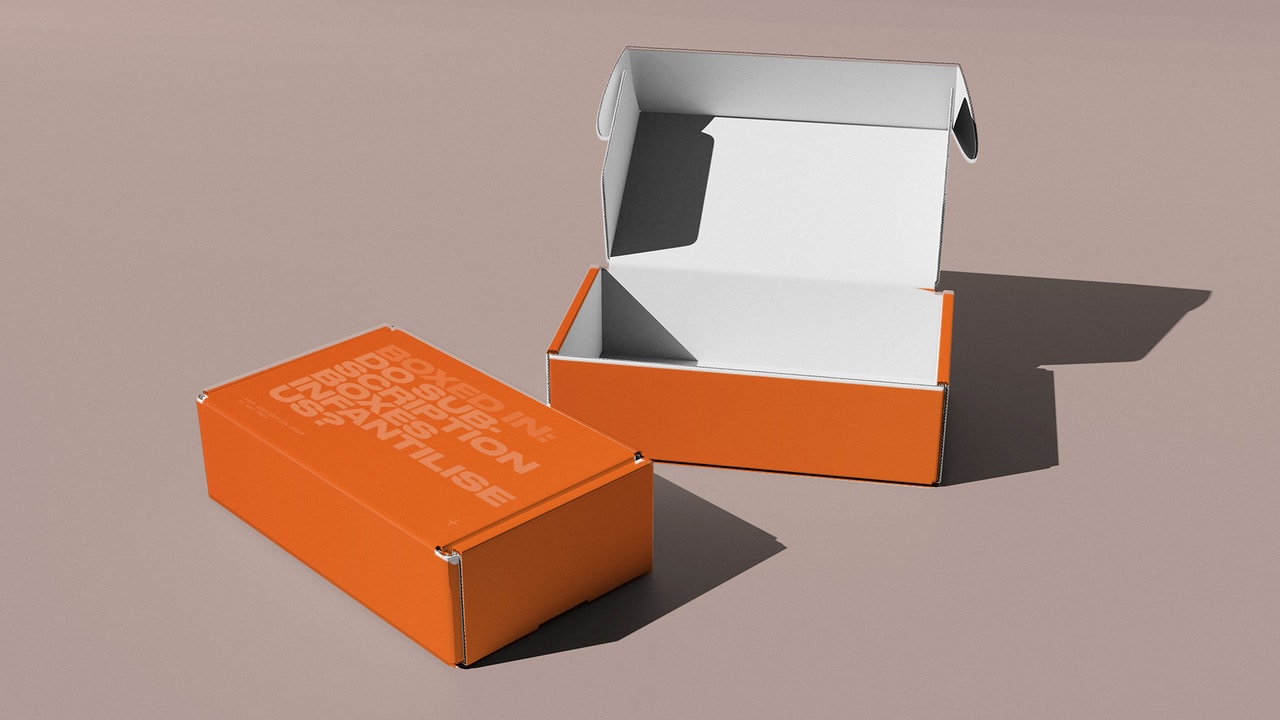
Emily Watkins dives headfirst into a critique of the new dominant method of consumption: subscription boxes. Meals, wine, entertainment, and even sex – is it good we’re making fewer decisions ourselves anymore and instead are outsourcing them to corporations?

Subscription boxes – blissfully convenient or too organised to be satisfying?
Long before the pandemic, the subscriptions were already superseding traditional retail. Now, following a year of real-life shops opening and closing – often without warning, sometimes permanently – that supremacy has been inviolably cemented. On the one hand, it’s a revelation. On the other: will I ever make a decision again?
On the one hand, it’s a revelation. On the other: will I ever make a decision again?
Recipes, clothes, skincare, wine, entertainment — in 2021, there is no limit to what one can order to consume at home without lifting a finger. Cook a Gousto dinner in your new Stitchfix outfit, enjoy a Savage glass of wine and settle down in front of the latest Prime Video offering (before heading upstairs for a novelty sexual encounter, courtesy of Couple Play). Having outsourced the mental anguish of what to wear/eat/watch, I need only sit passively and have my whole life curated by faceless super-brands. But if it’s making my life so much easier, then why does it feel… a bit sad?

Couple Play allows corporations to decide what you do in bed too
A couple of weeks ago, a friend mentioned she was using [redacted] recipe boxes for her dinners these days. Isn’t that expensive? I asked. Is it all processed food? Is it constrictive – like, what if you want something else to eat? The more she told me about it – cheaper than an average supermarket shop, fresh-ish ingredients, new recipes she’d never have thought to try – the more I floundered to find a flaw in the model. I couldn’t locate one any more than I could have explained why the idea of pre-portioned ingredients turning up to one’s door ought to be anything other than convenient; so, I copied her.
Having signed up (with a very palatable introductory discount) I’m dismayed to report that it’s fucking great, bar one niggling problem: when I cook a meal, I don’t feel proud of it. I’ve been thinking about why, because ostensibly I’m still the ‘chef’ – chopping, drizzling, seasoning. It’s nothing new to follow a blueprint when cooking something for the first time, and normally I’d be thrilled if a new recipe came out edible; yet, some ineffable threshold has been crossed when I can’t even be trusted to weigh out my own rice.
…one niggling problem: when I cook a meal, I don’t feel proud of it.
Look. If someone bundled you into a box, gave you five books and cheerfully pronounced that you were free to read them in any order you liked, would you say ‘gee, thanks for streamlining my reading experience!’ or would you say, ‘please let me out of this box’? That’s an intense example, I grant you – but the illusion of choice is built into a subscription’s DNA. Think of Netflix, the giant who arguably started the current craze: skim through their home page, and the impression is surely of abundance rather than scarcity. So many categories! So many new releases! Who cares if that specific show isn’t on here? Just stream something that is.
Shopping item by item, even in the face of frighteningly invasive AI and/or amoral employment models, involves flexing our ‘choice’ muscles to some degree. A subscription, on the other hand, is pre-curated. It’s convenient in the way that 2-in-1 shampoo is convenient, i.e., depressing. The idea that skipping a step in the shower is worth having shit hair is scaled up, swapping the mental labour of choosing something for being spoon fed it instead. Don’t worry! says the mega corporation. We’ll choose for you, and you won’t even notice.
Don’t worry! says the mega corporation. We’ll choose for you, and you won’t even notice.
Unless you can be bothered to cancel and resubscribe, it – sustenance, entertainment, a novelty sex toy – is arriving whether you need it or not: with most such services paid for by direct debit, you don’t even have to think about the transaction. The real genius of subscriptions is that they transform commerce into something that happens to you – and when you put it like that, it sounds like nothing less than a Bond villain’s endgame. Dr. No might have been evil, but he was smart. I think he would have loved subscriptions, appealing as they do to our laziest and most aspirational selves.
My box of food has cut two tasks (meal planning, trips to the supermarket) from my to-do list in one fell swoop. What’s more, there’s no sad celery looking gloomily at me from the bottom of the fridge after I needed one stick for a risotto and shrugged guiltily about the rest. I’m yet to succumb to any of the clothing subscription companies, but it’s no small part of me that would appreciate a stylist combining my preferences and budget with what’s fashionable and producing a neat parcel of cool trousers. If anyone said, I hate your trousers, I could confidently drop into a lunge and proclaim their taste inferior – not to my own, but to an algorithm’s.
Since March last year, we’ve not had much opportunity for gallivanting in three dimensions; as the world unfurls again like spring’s flowers, it’s worth making a concerted effort to participate if you feel safe doing so. Go for dinner somewhere weird, or ferret around at the back of your cupboards and google the ingredients like an inverse episode of Ready Steady Cook. Read a magazine, and then buy some clothes – unsupervised! – or sort through the ones you have. Chop off some sleeves or something, because if we’re not careful life will be reduced to a steady stream of deliveries instructing us what to want and when.
What we wear, what we eat, what we read, what we watch – implicit in the subscription model is that we can’t be trusted with such lofty decisions, especially considering their real world implications. Social signifiers, ingroups and outgroups: those cultural markers, it seems, are being increasingly handed to the ‘professionals’ (whoever they may be). Today, almost every choice that makes you you can be outsourced; personally, I’d like to reserve the right to make bad decisions on my own behalf. That recipe thing? Look, I’ll cancel it. One more week.




